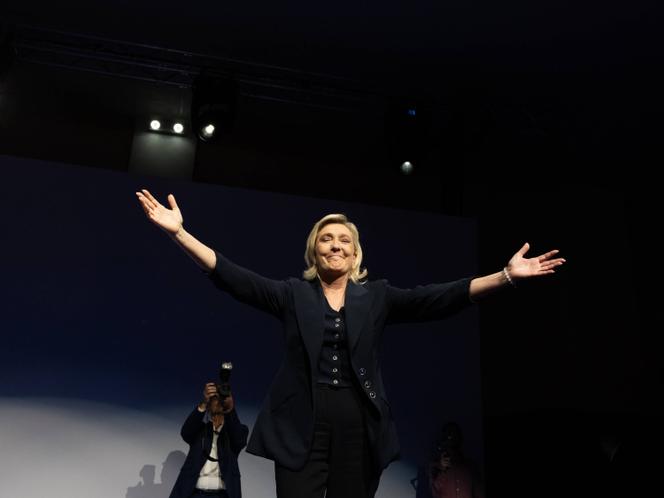
Russia’s Foreign Ministry publicly meddled in the French parliamentary elections, on Wednesday, July 3, posting on its official X account a photo of far-right leader Marine Le Pen, triumphant in her constituency of Hénin-Beaumont in the Pas-de-Calais after the first round. The photo was accompanied by a message from Andrei Nastasin, deputy director of the Foreign Ministry’s Information and Press Department, issued as a challenge to President Emmanuel Macron and pro-European forces. “The people of France are seeking a sovereign foreign policy that serves their national interest & a break from the dictate of Washington & Brussels,” it read. The Kremlin considers that “French officials won’t be able to ignore these profound shifts in the attitudes of the vast majority of citizens.”
The Russian statement, which signals Moscow’s support for the far-right Rassemblement National (RN) five days ahead of the second round of voting, repeats the message that the Kremlin and its various political and media relays have been putting across for months, against a backdrop of Western support for Ukraine: European presidents and governments would be reduced to the rank of mere intermediaries for the wishes of the United States and the European Union.
MEP Nathalie Loiseau (Renew), who chairs the defense sub-committee in Brussels, jumped at these words from Moscow. “Marine Le Pen can continue to claim that she doesn’t support Putin [the Russian president], but Putin, for his part, makes no secret of his support for the RN,” Loiseau said, after running into several European officials closely watching Sunday’s results: former Belgian prime minister Sophie Wilmès, Vice President of the European Commission Maros Sefcovic and former Portuguese minister Margarida Marques, all of whom said they were concerned of the risk of Russia’s influence over the RN. “But then, Ukraine? How will we manage if France is no longer on board?” said Loiseau.
‘A convergence of interests’
French intelligence services are also on the alert. “We all have in mind the risk of collusion between an RN government and Russia,” said one official. All the intelligence sources Le Monde interviewed said words to that effect. While no foreign electoral interference campaign has had any significant effect in France since the dissolution, there is, one specialist said, a “permanent background noise” in support of RN candidates or bashing Macron’s coalition and the left-wing parties, emanating from pro-Russian accounts or the American far right.
You have 66.69% of this article left to read. The rest is for subscribers only.